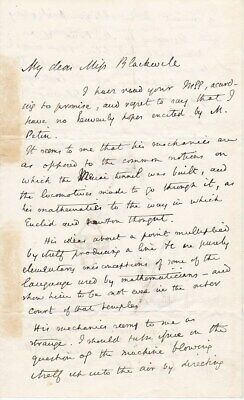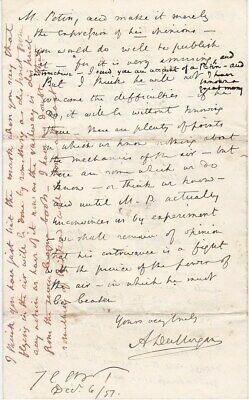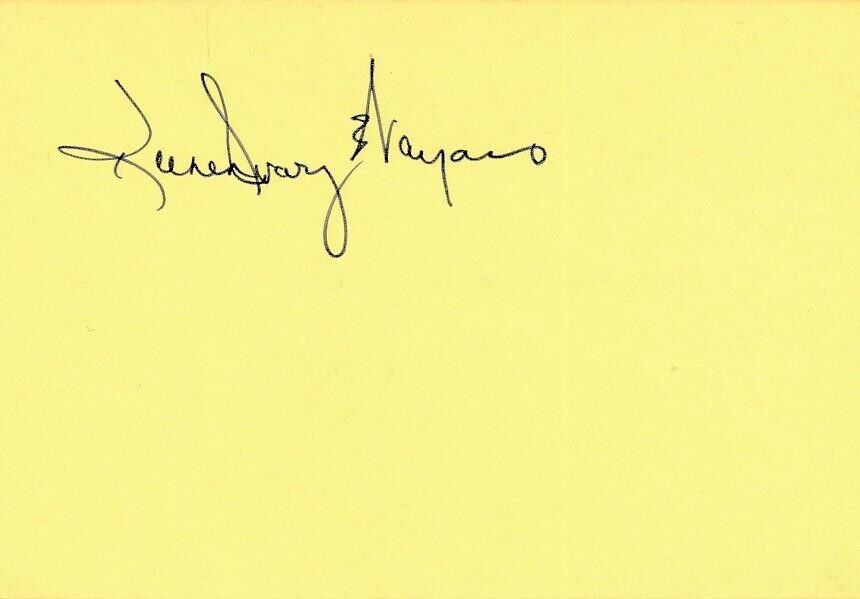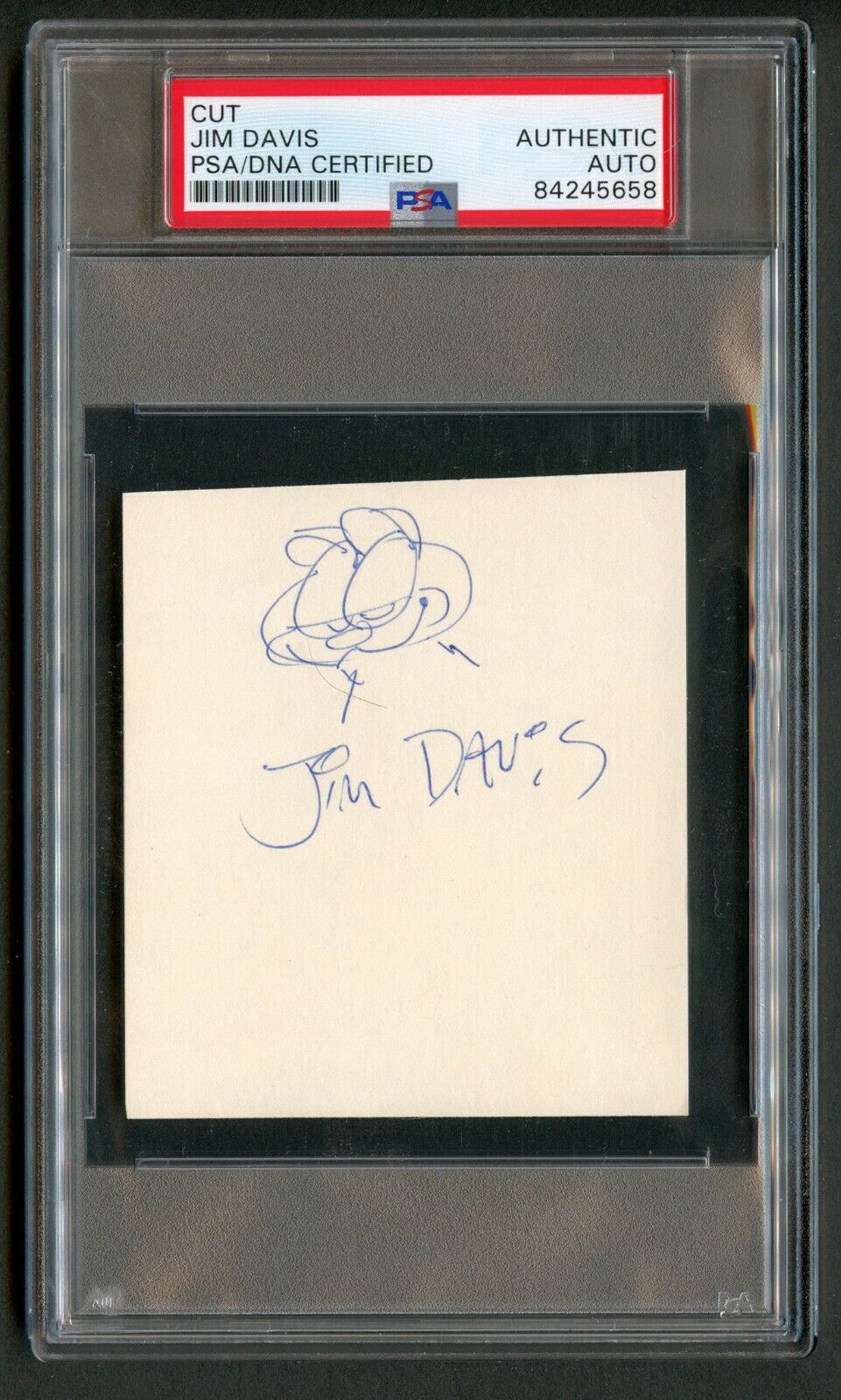-40%
Mathematics / Mathematician Augustus de Morgan Ridicules Flying Machines Signed
$ 396
- Description
- Size Guide
Description
Mathematician Augustus de Morgan Ridicules Flying MachinesAuthor:
de Morgan [Mathematics], Augustus
Title:
Mathematician Augustus de Morgan Ridicules Flying Machines
Description:
ALS : Autograph Letter Signed
Brilliant mathematician who made important contributions to the study of algebra and logic. Autograph letter signed. 4 pages. 7.25" x 4.5" inches. No place. December 6th 1857. To Miss [Anna] Blackwell. An interesting letter in which Augustus De Morgan talks about (and ridicules) some recent designs for flying machines and speculates on whether heavier than air manned flight will ever be achieved. He illustrates the letter with his own amusing drawings.
"I have read your MSS, according to promise, and regret to say that I have no heavenly hopes excited by M[onsieur] Petin. It seems to me that his mechanics are as opposed to the common notions on which the Menai tunnel was built, and the locomotives made to go through it, as his mathematics to the way in which Euclid and Newton thought. His ideas about a point multiplied by itself producing a line etc are purely elementary misconceptions of some of the language used by mathematicians - and show him to be not even in the outer court of that temple. His mechanics seem to me as strange. I should take issue on the question of the machine blowing itself up in the air by directing a current on an oblique sail or wing. According to M. Petin, if a man could but blow hard enough he could blow himself up into the air by holding out a looking-glass obliquely and blowing against it. [inserted here is an amusing drawing captioned: M. Petin inventor of the pneumatic ascent into heaven - Grief of the Devil thereat - and wonder of the heavenly host]. Any person who was but commonly acquainted with mechanics would have seen so much contradiction to all that is known in this ascent - and in the machine blowing itself forward any way - that he would have held himself bound to do something of the kind first, on a small scale. If he would only have made a boat, with a blowing machine on board, blow itself forward, in a small model, he would have justified some attention being paid to him. I think his upward motion would turn to simple revolution, as every upward motion does in France. He would blow his machine round and round - and the passengers would try the floor and ceiling alternatively - a plusiers reprises. I think that if you were to recast all the phrases in which you express some agreement with M. Petin, and make it merely the expression of his opinions - you would do well to publish it - for it is very amusing and instructive - I send you an account of a Petin - and I have known a great many. But I think he will not overcome the difficulties. If he do, it will be without knowing them. There are plenty of points on which we know nothing about the mechanics of the air but there are some which we do know, or think we know, and which until M. Petin actually unconvinces us by experiment, we shall remain of opinion that his contrivance is a fight with the presence of the power of the air - in which he must be beaten. I think you have just hit the mark when you say that flying in the air will be done by something as distinct from any action as . . .[?] of it now, as the railway is distinct from the seven league boats - I have no doubt that something of this kind will be done at last."
Augustus de Morgan was a highly respected and important mathematician of his time. He was a friend of Charles Babbage (inventor of the analytical machine, forerunner of the modern computer) and was tutor to Ada Lovelace (the daughter of the poet, Lord Byron, who supposedly wrote the first programme for Babbage's machine). He coined the terms 'mathematical induction' and 'double-algebra' and formulated De Morgan's Laws, the mathematical rules that are named after him. The work of Augustus De Morgan led to the development of the theory of relations and the rise of modern symbolic or mathematical logic. He introduced and defined the term mathematical induction to describe the process that, until then, had been used with little clarity in mathematical proofs. He was known as a witty correspondent and this is amply demonstrated in this fine autograph letter to Miss Blackwell. His correspondent, Anna Blackwell (1816-1900) was the elder sister of Elizabeth Blackwell, the first woman to gain a medical degree in America and the first woman to be registered in Britain as a medical practitioner. Anna Blackwell had a career as a poet, translator and journalist, but nurtured an interest in science and was a member of the Association Scientifique de France. Old folds and slight mounting traces to left margin of first leaf, else fine.
Provenance: From a 19th century album composed by the Blyth family. Edward Blyth, a London solicitor, was a friend and advisor to Elizabeth Blackwell and her family.
Seller ID:
14231
Subject:
Autographs, Letters and Archives, Europe, International items, Science, Medicine, Technology, Space and Aviation
Max
Rambod Inc
offers thousands of historical documents, letters, manuscripts, printed ephemera, and first editions in all variety fields. Since 1991, we have served an international clientele of collectors, private
institutions
, and public libraries in acquisition and collection development. We are members of ILAB, ABAA, and PADA, and have furnished collections around the world with rare and unique material for over 30 years; from the personal letters of Nobel-Prize winning scientists to first editions promoting abolition or women suffrage. We also offer Important First Editions of Literatre, Americana, Science, Military, African American and Woman History.
We offer an unconditional guarantee for each item's authenticity and completeness.
This listing was created by Bibliopolis.











